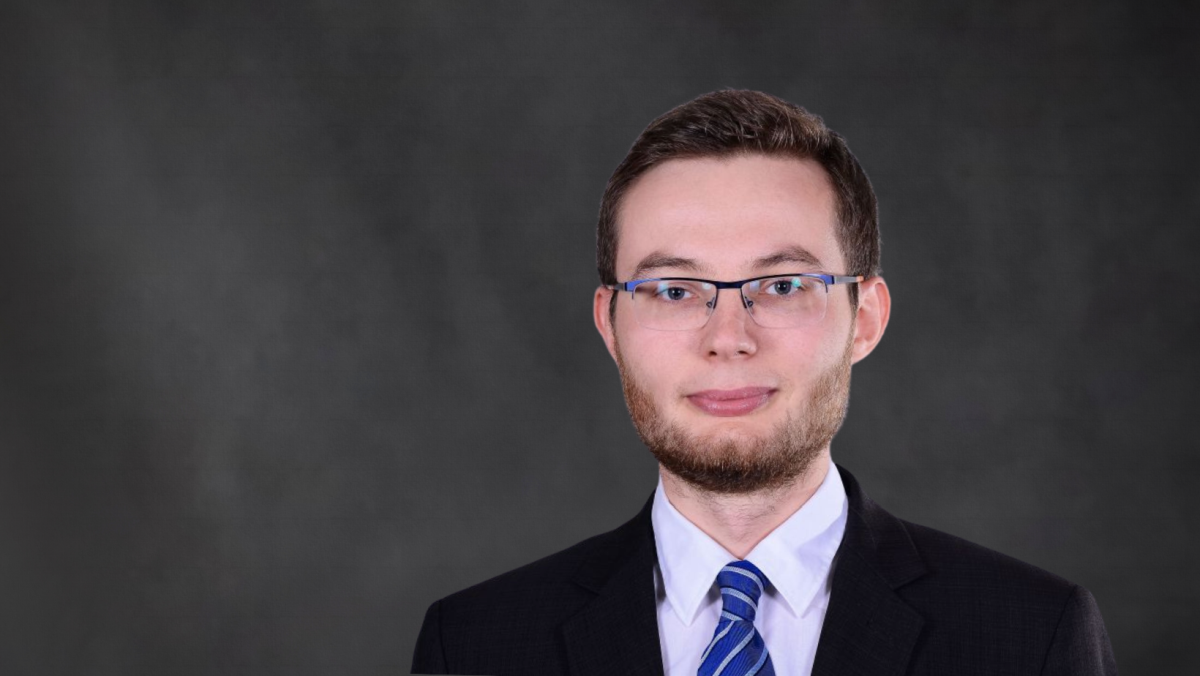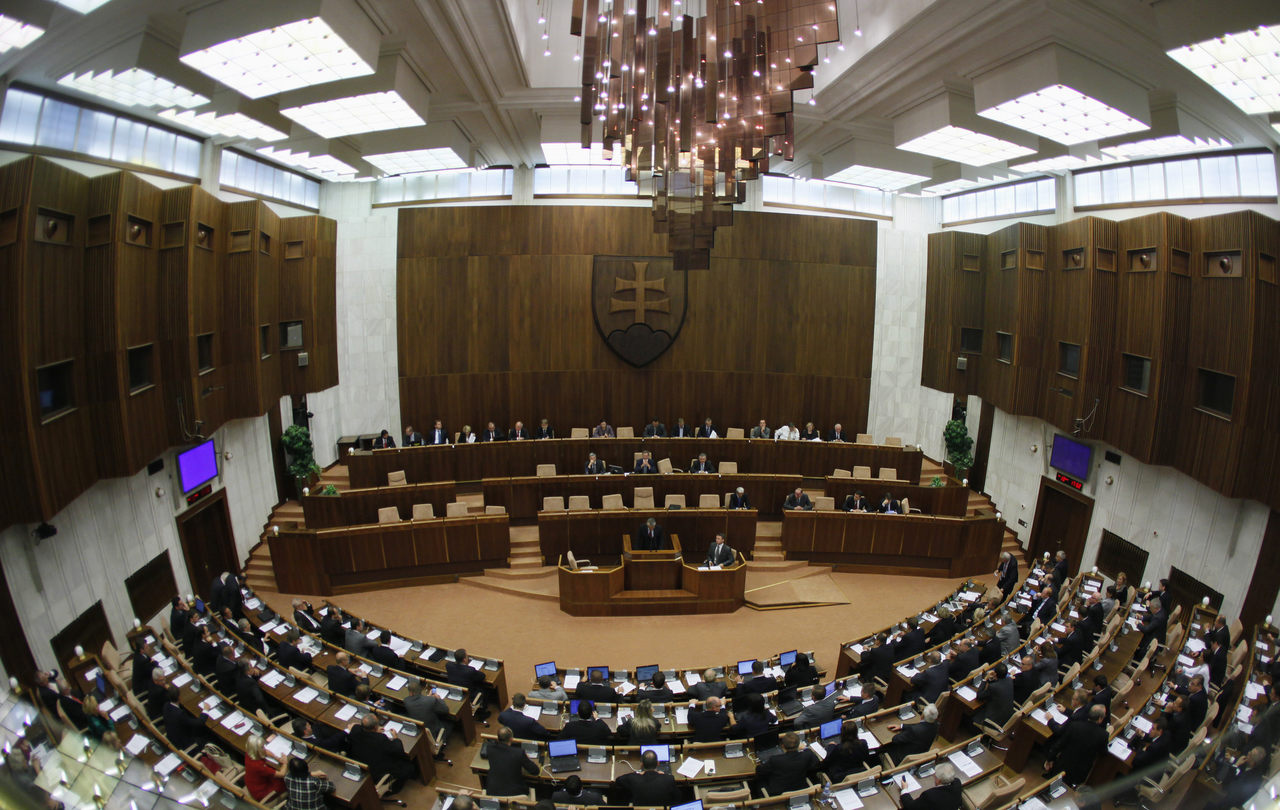Slovakia in Emergency Mode-Assessing the Performance of the First Technical Government
Despite failing to win a vote of confidence in mid-June, Ludovit Ódor’s technical government will run the state until early general elections in September. Its main task is to stabilise the political situation after the previous dismissal of Eduard Heger’s government, whose policy it is continuing. Despite friendly gestures and interests converging with Poland, including in the field of Eastern and energy policy, cooperation will be limited due to the legal restrictions of the government, which has a transitional character.
.jpg) RADOVAN STOKLASA / Reuters / Forum
RADOVAN STOKLASA / Reuters / Forum
The first technical government in the history of Slovakia and the third cabinet since the last parliamentary elections (February 2020) was sworn in on 15 May this year. It was created as a result of the departure of the ministers of agriculture and foreign affairs in the Heger government. This sealed the fate of the cabinet, which from January this year—despite resignation as a result of a parliamentary vote of no-confidence—managed the state. This is because the national political and legal system makes it possible to persist in such a mode for many months.
Facing the Heger government’s resignation, President Zuzana Čaputová—using her narrow powers, which gave her, however, the initiative in situations of political constitutional crises—entrusted the mission of forming a technical cabinet to Ódor, vice-president of the National Bank of Slovakia. However, a month later, the National Council did not express its confidence in the new government (34 MPs voted in favour, 43 against, and 54 abstained). As a consequence, on 15 June Čaputová accepted the Ódor cabinet’s resignation, leaving Slovakia governed by the second dismissed government in just five weeks.
Consequences of the Rule of a Technical Cabinet
The lack of a vote of confidence means that the government will function without the legitimacy of the parliament until the elections scheduled for 30 September. This translates into limited competences in economic and social policy and abstaining from decisions on issues that could fundamentally change domestic and foreign policy. Some of them require the prior consent of the head of state.
Ódor’s government is to stabilise the political situation before the elections by, among other things, staying out of party lines. Therefore, the prime minister declared bridging divisions as one of his priorities. This is to be facilitated by the expert character of the cabinet and its maximum apolitical character—the condition for entering was not to run in the upcoming parliamentary elections.
Expert Government, Professional Politics
Ódor’s cabinet is largely a continuation of Heger’s government, even if most of the parties that make up it did not support it. This is evidenced by the prime minister’s announcements regarding, among others, continuation of the main directions in foreign policy and the nominations—despite the technical nature of the government—of people associated with the previous government. They include Minister of Foreign Affairs Miroslav Wlachovski, an advisor to Prime Minister Heger on foreign affairs, and Minister of Defence Martin Sklenár, who joined the ministry as director only in this parliamentary term.
One of the most important tasks of the technical government is to prepare the next year’s budget in a balanced and realistic version (with a possible deficit). The prime minister declares that these proposals will include aid for Ukraine and the maintenance of the Alliance goal of spending 2% of GDP on defence. Ódor has also set himself an important goal to improve, in his opinion, the catastrophic efficiency in obtaining EU funds. Indeed, Slovakia ranks third from bottom in this respect in the EU and is at risk of losing unused funds (about €800 million) from the 2014-2020 budget, of which it has used only 70%. These tasks are to be facilitated by the prime minister’s economic experience (related, among others, to his advisory and academic functions), in which he manifested economically liberal views.
The cabinet of experts proposes specific changes in general terms, which is confirmed by the government’s short and selective programme. Although most of the goals have no deadline, the government is looking beyond the general elections. In key areas, it suggests solutions to help future governments, regardless of their composition. The technical government declares as goals, among other things, fighting disinformation, increasing exports, and stopping “brain drain”. The medium-term foreign policy strategy, which is yet to be presented, is intended to specify the priorities towards external actors.
Continuation of Foreign Policy
Ódor’s government is a continuator of the main lines of foreign and defence policy of Heger’s cabinet. This means an emphasis on the importance of cooperation with Western allies, both with the U.S. as well as with Germany and France. This approach was reflected in the invitation of the German deputy minister to the meeting of the V4 defence ministers in the High Tatras on 11-12 June. Germany plays an important role in increasing Slovakia’s defence potential (for example, Slovakia received Leopard 2A4 tanks for BVP-1 infantry fighting vehicles transferred to Ukraine). In turn, the visit of French President Emmanuel Macron to Bratislava on 31 May was used by Prime Minister Ódor to talk about making the nuclear sector independent of Russia with the help of French companies.
Lasting until mid-year, Slovakia’s presidency of the Visegrad Group and the Slavkov Triangle (S3) did not prompt Ódor’s cabinet to increase the dynamics of regional cooperation, as evidenced by the omission of this topic from the government’s agenda. This does not mean that activity in these formats has been stopped. In the case of the V4, it was confirmed, for example, by the declaration of the defence ministers—the first Visegrad joint statement this year—regarding the Air Policing mission in Slovak airspace. In the S3, this is evidenced by, among others, a presentation of joint humanitarian and development aid during Wlachovski’s visit to Beirut and the announcement of the visit of S3 ministers to North Macedonia. Despite Ódor’s Hungarian origin (he was born in Komárno on the Slovak-Hungarian border), it will not contribute to improving relations with the government of Viktor Orbán due to numerous discrepancies, including the Hungarian perception of the rule of law or the Russia-Ukraine war.
The technical government is in favour of “supporting lasting peace solutions” that would include punishing Russia, preserving Ukraine’s territorial integrity, and assisting in its reconstruction. Slovakia, which has been supporting Ukraine since the beginning of the Russian invasion, under Ódor will continue to do so in the political, humanitarian, and military dimensions. Therefore, Sklenár, for example, and his counterparts from Czechia and Ukraine signed a declaration on cooperation in the purchase and operation of tracked infantry fighting vehicles. The government’s position on this matter is compatible with the actions of the head of state and parliament. Čaputová, who, for example, during her visit to Kyiv in May, declared assistance in mine-clearing and reconstruction, will support Ukraine until the end of her presidency (she will not run for a second term in the spring 2024 elections). On the other hand, on 20 June, the National Council recognised the Holodomor, the great famine in Ukraine in 1932-1933, as genocide.
Conclusions and Perspectives
The appointment of a technical government means the end of more than three years of rule of a coalition of right-wing and liberal parties. In turn, the failure of talks over the vote of confidence indicates a lack of political interest among the majority of parliamentary forces in supporting Ódor. The prospect of a cabinet functioning for only a few months, additionally burdened with a lack of trust in parliament, narrows down the possibilities of implementing political and economic changes. Despite the ongoing election campaign, thanks to its non-partisan character and avoidance of ideological issues, the expert government has a chance to calm the socio-political mood in the country. It would also be a success for the prime minister if he were to submit proposals going beyond the presentation of next year’s budget, like enabling Slovakia to be more effective in the acquisition of EU funds.
From Poland’s perspective, the declarations by the technical cabinet on reducing energy dependence on Russia and drawing attention to the need to improve transport connections is noteworthy. The Ódor government critically summarises the progress on the Slovak section of Via Carpathia and calls for the acceleration of works on the D3 route leading to the Polish border. The announcements of investments in nuclear energy are a common element of the policy of both countries, and the continuation of bilateral gas transmission secures the Polish and Slovak energy markets. This is possible, for example, thanks to the gas interconnector between Strachocina and Veľké Kapušany compressor station that opened in August last year. Further willingness to strengthen bilateral cooperation was signalled by Minister Wlachovski’s visit to Poland, the second foreign visit after Czechia. However, the temporary nature of the technical government means that the results of the autumn parliamentary elections will determine the shape of Slovakia’s future foreign policy.





.jpg)